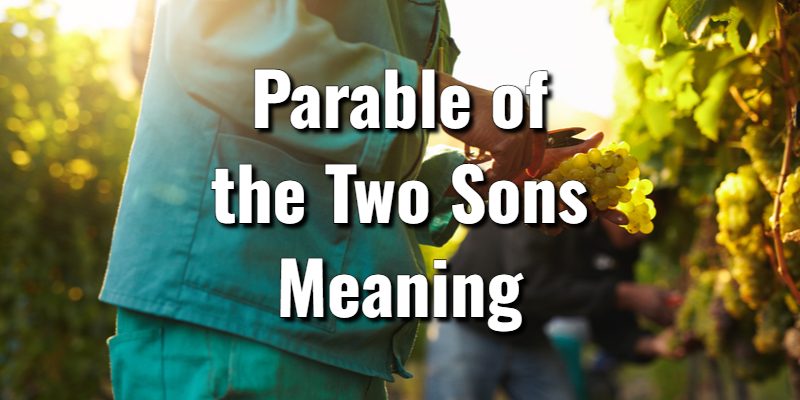In this parable, Jesus uses the story of two sons to convey a lesson about obedience and repentance. The two sons represent different responses to God’s call and commandments. The first son represents those who initially reject or resist God’s will but later repent and obey. The second son represents those who verbally express willingness to obey but do not follow through with their actions. In the parable, a man approaches his two sons and asks them to go and work in his vineyard. The first son initially refuses but later regrets his decision and goes to work in the vineyard as his father requested. The second son, when asked the same question, agrees to go and work in the vineyard but does not follow through on his promise. Jesus then asks the crowd listening to Him which of the two sons did the will of his father. They respond that it was the first son—the one who initially refused but later obeyed his father’s command. This parable emphasizes the importance of sincere obedience and the priority of deeds over words.
It teaches that true repentance and obedience to God’s will are characterized by action rather than mere verbal agreement. While the second son’s words seemed obedient, his lack of action revealed his insincerity. In contrast, the first son’s initial refusal demonstrated disobedience, but his subsequent action demonstrated genuine repentance and obedience.
Parable of the Two Sons Meaning
The Parable of the Two Sons meaning can be found in Matthew 21:28-32:
Matthew 21:28-32
“But what think ye? A certain man had two sons; and he came to the first, and said, Son, go work to day in my vineyard. He answered and said, I will not: but afterward he repented, and went. And he came to the second, and said likewise. And he answered and said, I go, sir: and went not. Whether of them twain did the will of his father? They say unto him, The first. Jesus saith unto them, Verily I say unto you, That the publicans and the harlots go into the kingdom of God before you. For John came unto you in the way of righteousness, and ye believed him not: but the publicans and the harlots believed him: and ye, when ye had seen it, repented not afterward, that ye might believe him.”
Lord's Library participates in affiliate programs. We may make a small commission from products purchased through this resource.
- What Does the Bible Say About Achievements? With Key Scriptures - April 11, 2025
- What does the Bible Say About Abortion? With Key Scriptures - April 11, 2025
- Prosperity Gospel Meaning in the Scriptures: Is it Biblical? - April 7, 2025













